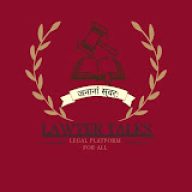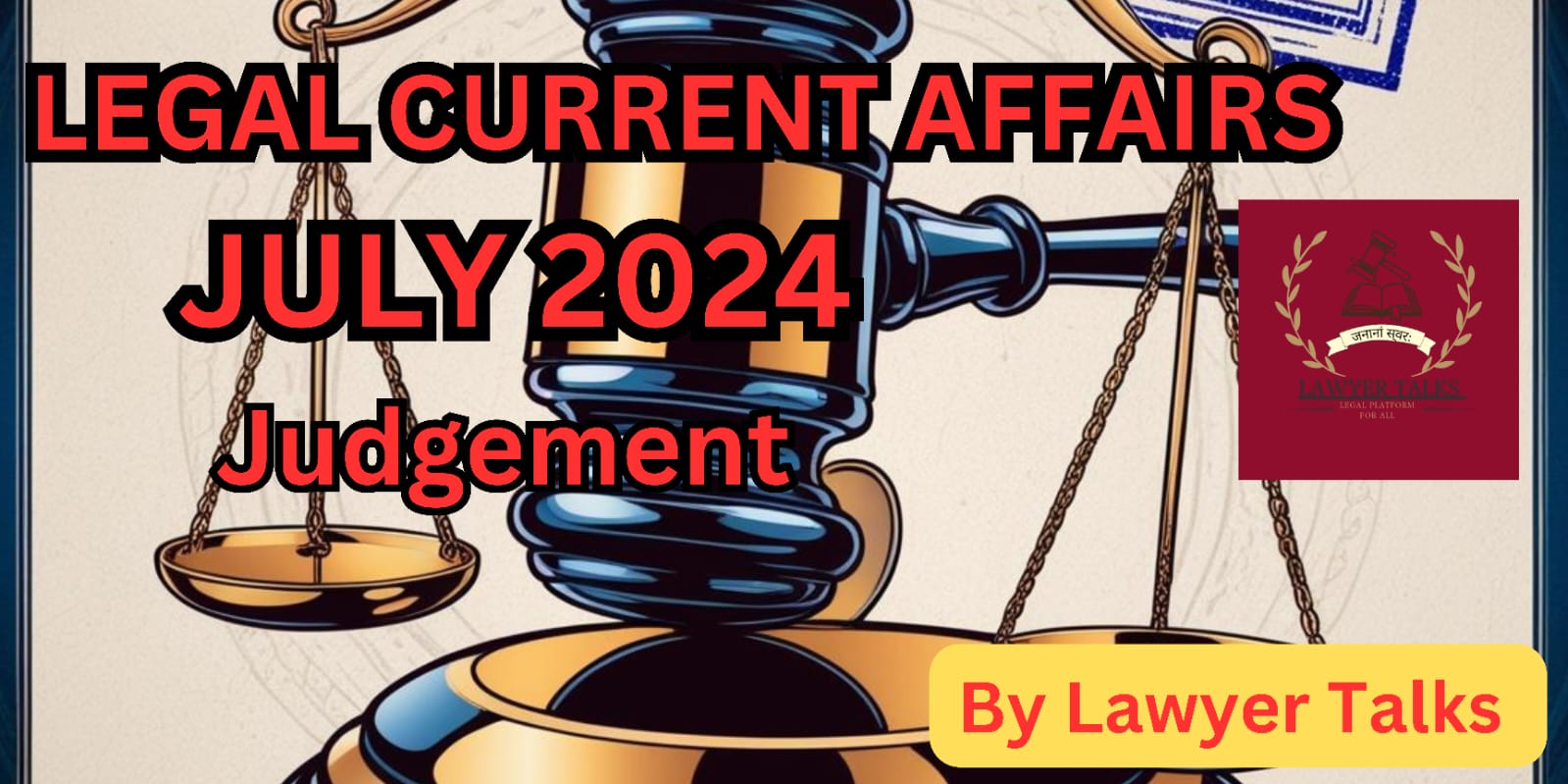Table of Contents
ToggleJaved Gulam Nabi Shaikh vs The State of Maharashtra
COURT: The Supreme Court of India
CORAM: Justice JB Pardiwala and Justice Ujjal Bhuyan
DATE OF JUDGEMENT: 3rd July 2024
FACTS
An appeal by the accused against a February 2024 Bombay High Court order that refused to grant bail to the accused. The accused was apprehended by Mumbai Police in 2020 based on secret documents, which led to the recovery of counterfeit currency notes allegedly from Pakistan. The NIA later took over the investigation.
ISSUES RAISED
Whether an accused has a right to speedy trial under article 21 of the Indian Constitution in serious offences?
JUDGEMENT
The Supreme Court noted that two co-accused had already been arrested and granted bail, with one bail order currently under challenge before the Supreme Court. The accused was in jail as an undertrial for four years, the trial court had not framed charges and that the prosecution was to examine 80 witnesses.
The Supreme Court said that “You are the NIA. Please do not make a mockery of justice. It is 4 years and the trial has not commenced. This is not done. Whatever offence the accused has committed, he has the right to speedy trial. Do not say a word now. Not a word.” The Supreme Court while setting aside the Bombay High Court’s order and granted bail to the accused said that “Howsoever serious a crime be the accused has a right to speedy trial as enshrined under the constitution. Right to speedy trial was infringed thereby violating article 21.”
Frank Vitus vs Narcotics Control Bureau
COURT: The Supreme Court of India
CORAM: Justice Abhay S. Oka and Justice Ujjal Bhuyan
DATE OF JUDGEMENT: 8th July 2024
FACTS
An appeal was filed before the Top Court against certain conditions imposed by the Delhi High Court in its order granting interim bail to a Nigerian national, Frank Vitus, who was an accused in a drugs case.
As a condition for the grant of bail, the High Court in 2022 had ordered the accused man and a co-accused to drop a pin on Google Maps to ensure that their location was available to the Investigation Officer of the case. The accused were also asked by the Delhi High Court to get an assurance from the High Commission of Nigeria that the accused would not leave India and would appear before the trial court.
ISSUES RAISED
Whether Courts can order an accused to share his Google PIN location with the authorities as a
condition for the grant of bail?
JUDGEMENT
The Supreme Court observed that “Courts can curtail the freedom of the accused only to the extent required for imposing the bail conditions warranted by law. Bail conditions cannot be so onerous as to frustrate the order of bail itself. The investigating agency cannot be permitted to continuously peep into the private life of the accused enlarged on bail, by imposing arbitrary conditions since that will violate the right of privacy of the accused, as guaranteed by Article 21.”
The Supreme Court while allowing the plea said that “The (locating sharing) condition deserves to be deleted. In some cases, this Court may have imposed a similar condition. But in those cases, this Court was not called upon to decide the issue of the effect and legality of such a condition.”
Mohd Abdul Samad vs State of Telangana and anr.
FACTS
An appeal was filed before the Supreme Court by the husband against the order of the High Court. Maintenance plea was filed before the Family Court by the wife. Family Court order directed the petitioner to pay interim maintenance of ₹20,000 per month. This was challenged before the High Court on the grounds that the couple had gotten divorced as per Muslim personal law in 2017. The High Court modified the maintenance to ₹10,000 per month and directed the family court to dispose of the case within six months.
The counsel appearing for the man submitted that in view of the Muslim Women (Protection of Rights on Divorce) Act, 1986, a divorced Muslim woman is not entitled to claim benefit under Section 125 CrPC. The 1986 Act is more beneficial to Muslim women.
ISSUES RAISED
Whether a divorced Muslim woman can file a claim for maintenance under Section 125 of the
CrPC against her former husband?
JUDGEMENT
The Supreme Court while rejecting the appeal said that “We are hereby dismissing the criminal appeal with the major conclusion that Section 125 CrPC would be applicable to all woman and not just married woman.”
The Supreme Court further said that if during the pendency of application under Section 125 CrPC, the concerned Muslim woman gets divorced, then she can take recourse to Muslim Women (Protection of Rights on Marriage) Act, 2019. The 2019 Act provides remedy in addition to the remedy under Section 125 CrPC. In the Shah Bano case held that Section 125 CrPC is a secular provision applicable to Muslim women too.
Central Information Commission vs DDA and anr.
COURT: The Supreme Court of India
CORAM: Justice Vikram Nath and Justice Satish Chandra Sharma
DATE OF JUDGEMENT: 10th July 2024
FACTS
An appeal was filed before the Supreme Court by CIC challenging May 2010 judgment of the Delhi High Court. The High Court had held that the Chief Information Commissioner lacks powers to constitute benches, issue orders, frame regulations and form committees in exercise of its work under Section 12(4) of the RTI Act, leading to the instant appeal by the CIC.
ISSUES RAISED
Whether CIC has powers to constitute benches, issue orders, frame regulations and form committees in exercise of its work?
JUDGEMENT
The Supreme Court observed that “While the [Right to Information] RTI Act does not explicitly grant CIC the authority to frame Regulations, the overarching powers granted under Section 12(4) of the RTI Act inherently include the ability to manage the Commission’s affairs effectively. These Regulations are essential tools for ensuring the efficient administration and operation of the Commission, addressing various procedural and managerial aspects necessary for fulfilling its mandate.”
The Supreme Court while allowing the appeal said that “The CIC must be allowed to operate independently and exercise its powers of superintendence, direction, and management without external constraints. The principle of non-interference is crucial for maintaining the integrity and efficacy of the CIC. Allowing the Commission to function autonomously ensures that it can fulfil its role in promoting transparency and accountability, which are the cornerstones of the RTI Act. The ability to form benches and allocate work among Information Commissioners is essential for the CIC to manage its workload effectively and uphold the citizens’ right to information.”
COURT: The Supreme Court of India
CORAM: Justice B.V. Nagarathna and Justice Augustine George Masih
DATE OF JUDGEMENT: 10th July 2024
Sheikh Javed Iqbal @ Ashfaq Ansari @ Javed Ansari v State of Uttar Pradesh
COURT: The Supreme Court of India
CORAM: Justice J.B. Pardiwala and Justice Ujjal Bhuyan
DATE OF JUDGEMENT: 18th July 2024
FACTS
A bail application was filed before the Supreme Court by the accused charged under UAPA. The accused man had been arrested near the Sanoli Nepal Border by the ATS in 2015, on allegations that he was found with a huge quantity of fake Indian currency of the ₹1000 and ₹500 denomination and totaling around ₹23-26 lakhs.
The proceedings initiated against the accused under the Unlawful Activities (Prevention) Act were set aside by the Allahabad High Court in 2021 on the ground that proper sanction was not obtained. This order was challenged by the ATS before the Supreme Court, which stayed the High Court’s 2021 order but was yet to pronounce a final verdict on this aspect. The applicant’s counsel argued that the bail should be granted to the accused as he has been in jail from eight years.
ISSUES RAISED
Whether restrictive clauses of stringent penal statutes can prevent courts from granting bail?
JUDGEMENT
The Supreme Court observed that “Right to life and personal liberty enshrined under Article 21 of the Constitution of India is overarching and sacrosanct. A constitutional court cannot be restrained from granting bail to an accused on account of restrictive statutory provisions in a penal statute if it finds that the right of the accused-undertrial under Article 21 of the Constitution of India has been infringed. In that event, such statutory restrictions would not come in the way.”
The Supreme Court while allowing the plea said that “Even in the case of interpretation of a penal statute, howsoever stringent it may be, a constitutional court has to lean in favour of constitutionalism and the rule of law of which liberty is an intrinsic part. It would be very wrong to say that under a particular statute, bail cannot be granted. It would run counter to the very grain of our constitutional jurisprudence.”
M/S New Win Export and Another v. A Subramaniam
COURT: The Supreme Court of India
CORAM: Justice Sudhanshu Dhulia and Justice Ahsanuddin Amanullah
DATE OF JUDGEMENT: 11th July 2024
FACTS
An appeal was filed before the Supreme Court against the order of conviction of High Court. The respondent had filed a complaint under Section 138 of the NI Act. The trial court convicted the appellants and sentenced them to one year of simple imprisonment each. The appellants were later exonerated by the appellate court. However, on appeal by the complainant, the High Court revived the conviction of the appellants.
Highlight
Courts should encourage compounding of cheque bouncing offences under the Negotiable Instruments Act, 1882 (NI Act), if parties are willing to do so.
JUDGEMENT
The top court noted that Section 147 of the NI Act allows for the compounding of offences. It also took note that under Section 320(5) of the Code of Criminal Procedure, 1973, compounding after conviction requires the leave of the court where the appeal is pending. The Supreme Court observed that “It is to be remembered that dishonour of cheques is a regulatory offence which was made an offence only in view of public interest so that the reliability of these instruments can be ensured. A large number of cases involving dishonour of cheques are pending before courts which is a serious concern for our judicial system. Keeping in mind that the ‘compensatory aspect’ of remedy shall have priority over the ‘punitive aspect’, courts should encourage compounding of offences under the NI Act if parties are willing to do so.”
The Supreme Court while allowing the appeal held that considering the totality of the circumstances and compromise between the parties, we allow this appeal and acquit the appellants by setting aside the impugned order dated 01.04.2019 as well the Trial Court’s order dated 16.10.2012.
- Dying declaration
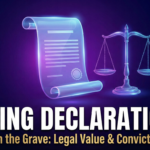 by Aayush Anand & LT Team
by Aayush Anand & LT Team - Bihar APO Exam Date 2026: Prelims Scheduled for July 15 – Check Official Notification
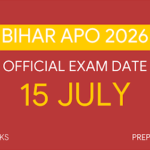 by Aayush Anand & LT Team
by Aayush Anand & LT Team - UP APO Exam Date 2026 Announced: Check UPPSC Official Calendar & Schedule
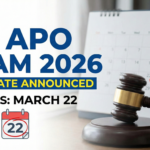 by Aayush Anand & LT Team
by Aayush Anand & LT Team - Indian Army JAG 124 Notification 2026: Vacancies, Eligibility, and Apply Online
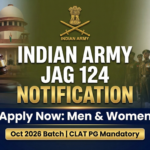 by Aayush Anand & LT Team
by Aayush Anand & LT Team - Official IBPS 2026-27 Calendar Out: Check SO Law & RRB Scale II Dates
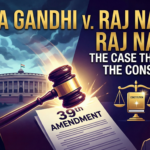 by Aayush Anand & LT Team
by Aayush Anand & LT Team
Santosh Kumar @ Santosh v. State of Bihar
COURT: The Supreme Court of India
CORAM: Justice Abhay S Oka and Justice Augustine George Masih
DATE OF JUDGEMENT: 22nd July 2024
FACTS
An appeal was filed before the Supreme Court challenging the Patna High Court’s February 2024 decision to reject the bail plea of a man arrested in a cheating case in 2023.
ISSUES RAISED
Whether the High Court can order that the criminal trial against the accused man be completed within a year?
JUDGEMENT
The Supreme Court noted that while rejecting the bail plea, the High Court had ordered that the criminal trial against the accused man be completed within a year. The High Court further granted liberty to the accused to renew his bail plea if the trial is not completed by then. The Supreme Court observed that the High Courts are issuing such directions without even considering that every criminal Court in the State of Bihar will have huge pendency. Such a direction went against the Supreme Court’s ruling in High Court Bar Association, Allahabad vs. State of Uttar Pradesh and Others (2024), wherein it was held that constitutional courts should avoid imposing time schedules for the disposal of cases in other courts.
The Supreme Court while allowing the plea said that “A case is made out for enlarging the appellant on bail, pending trial. For that purpose, the appellant shall be produced before the Trial Court within a maximum period of one week from today. The Trial Court shall enlarge the appellant on bail on appropriate terms and conditions, pending trial.”
Commercial Tax Officer v. PVR Limited
COURT: The Supreme Court of India
CORAM: Justice BV Nagarathna and Justice N Kotiswar Singh
DATE OF JUDGEMENT: 30th July 2024
FACTS
An appeal was filed before the Supreme Court against the order of the High Court in which it was ruled that the 1939 Act can in no manner include such online service charges as part of entertainment tax.
The counsel for the Tax department argued that extra charges that are paid online is to watch the movie and should, therefore come under the head of entertainment tax.
ISSUES RAISED
Whether online booking charges levied by cinema hall owners can be subjected to entertainment tax under Tamil Nadu Entertainment Tax Act, 1939?
JUDGEMENT
The Supreme Court said that “So instead of going directly to cinema theatre where I can get the ticket directly, I am buying it from my home, so that is the charge you are taking for your service. How will that come under entertainment tax? I am getting a ticket through luxury instead of going to talkies or theatres. Will this be under entertainment tax? This is extra convenience that is being provided to me. It has no link with the movie or entertainment part.”
The Supreme Court while upholding the judgment given by the Madras High Court said that “We are not inclined to interfere with the decision of Division Bench of Madras High Court. Dismissed.”
